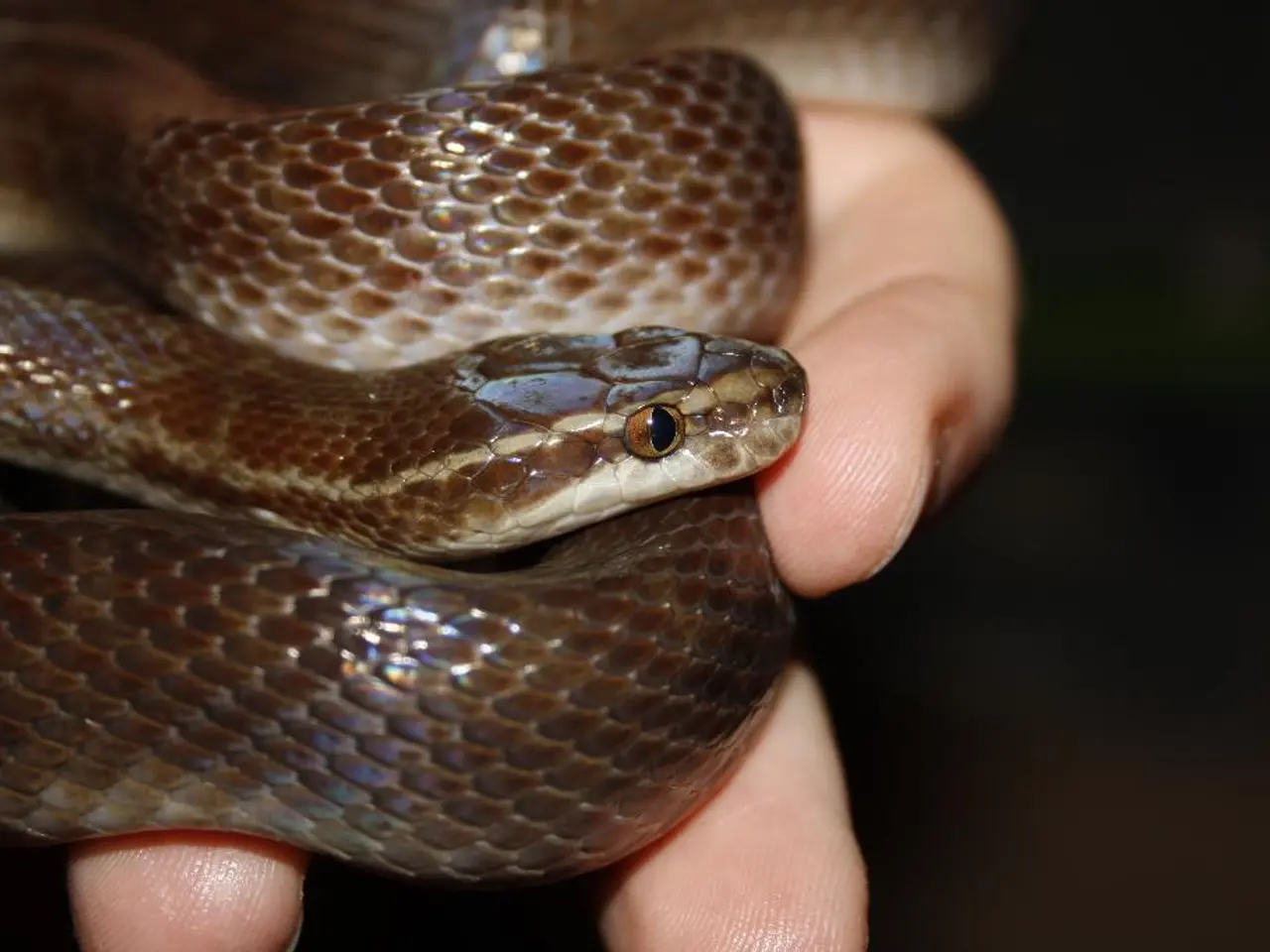Man from Odisha carries venomous cobra into hospital after it bites him
In the quiet town of Udala, Odisha, a local hero named Ajit found himself in the midst of a harrowing ordeal when he was bitten by a cobra. The incident has left the community stunned and in a state of concern, but the swift actions of Ajit and medical professionals have given hope for his recovery.
Many in the local community praise Ajit for his presence of mind in the face of danger. Upon being bitten, Ajit remained calm and quickly sought help, ensuring that the snake was caught and brought to the hospital. Dr. Rajkumar Nayak, a local medical practitioner, identified the snake as a cobra, a species known for its potent and dangerous venom.
Upon arrival at the hospital, Ajit's condition was deemed critical. He displayed clear neurotoxic symptoms, a common effect of cobra venom, which can cause paralysis and respiratory failure if not treated promptly. The antivenom for cobra venom was administered to Ajit, a crucial step in managing such cases.
The procedure for identifying and treating a cobra bite involves immediate immobilization of the bitten limb, rapid transport to a medical facility, identification of the snake for correct antivenom administration, and intensive medical treatment with antivenom and supportive care. In Ajit's case, the swift identification of the snake might have saved his life.
First aid at the site is crucial. Immobilizing the bitten limb with a splint or bandage helps reduce venom spread via lymphatic flow. A pressure immobilization bandage should be snug but not cutting off circulation, extending from just above the bite site upwards along the limb. This slows venom movement but should be applied carefully depending on the venom effect type.
Speedy medical care is critical, as antivenom is most effective if administered within 4 hours, though it can still help within 24 hours. Hospital treatment involves intravenous antivenom therapy tailored to the cobra's venom, as cobra venom contains neurotoxins and cytotoxins requiring specific care. The dose depends on envenomation severity and can be large; there are reports of cases needing multiple vials or shots to stabilize the patient.
Supportive care may include pain relief, monitoring for breathing or airway issues, intravenous fluids, and sometimes tetanus prophylaxis. Continuous evaluation of symptoms and potential allergic reactions to antivenom is important, as antivenoms can cause adverse effects.
After emergency treatment, Ajit was transferred to Baripada for advanced care. Although specific medical details are not provided in the search results, the above protocol reflects the standard approach in India for cobra bites, emphasizing early identification, immobilization, and aggressive antivenom treatment at a hospital.
The community continues to rally around Ajit, holding out hope for his recovery. The incident serves as a stark reminder of the dangers that lurk in the countryside and the importance of quick thinking and medical care in such situations.
[1] World Health Organization. (2018). Snakebite envenoming: a global burden. Retrieved from https://www.who.int/publications/i/item/snakebite-envenoming-a-global-burden [2] Centers for Disease Control and Prevention. (2021). Snakebite. Retrieved from https://www.cdc.gov/snakebite/index.html [3] World Health Organization. (2019). Snakebite: a long neglected public health problem. Retrieved from https://www.who.int/news-room/fact-sheets/detail/snakebite [4] National Institute of Neurological Disorders and Stroke. (2021). Snakebite envenoming. Retrieved from https://www.ninds.nih.gov/Disorders/All-Disorders/Snakebite-Envenoming-Information-Page [5] Medscape. (2021). Snakebite. Retrieved from https://emedicine.medscape.com/article/1129523-overview
In the aftermath of the cobra bite, Ajit's health escalated to serious medical conditions that could have potentially been life-threatening, being neurotoxic symptoms due to the dangerous venom of the cobra. The swift investigation into his medical condition at the hospital, followed by the administration of the correct antivenom, was instrumental in promoting his health and wellness, thus underscoring the crucial role science plays in managing such medical emergencies.




